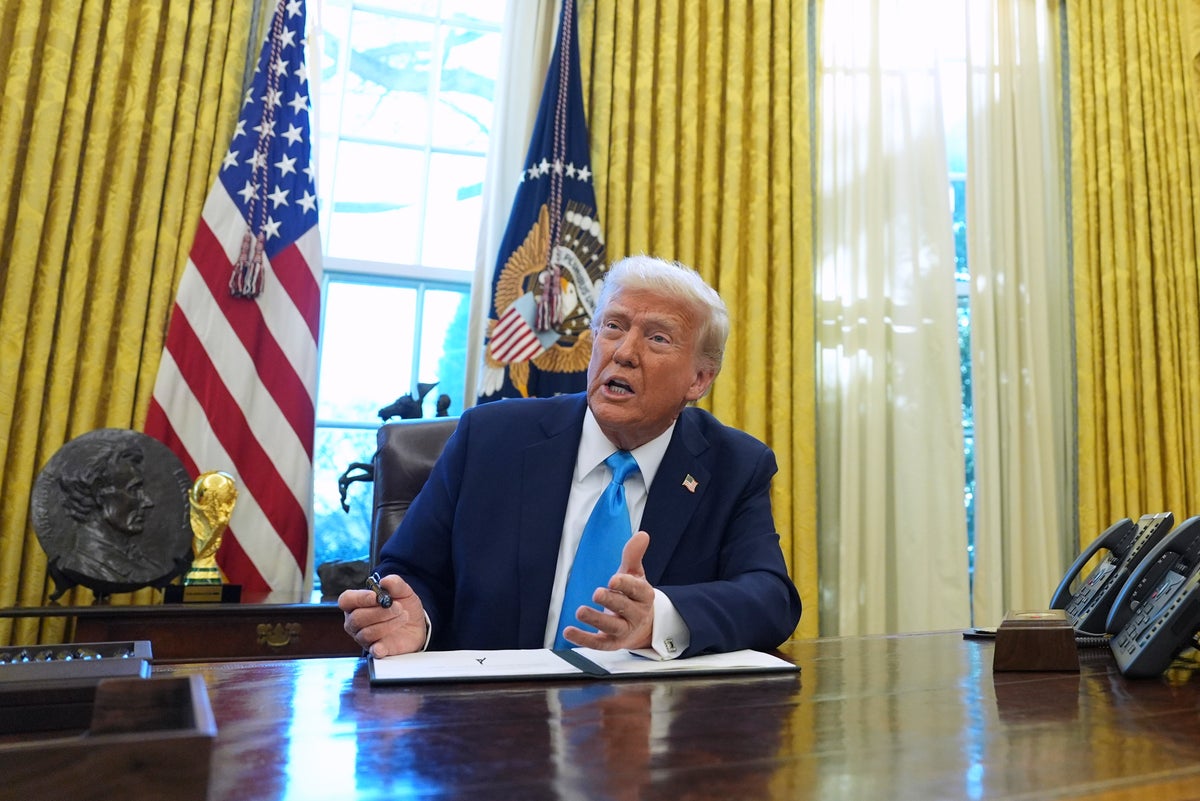Figures who backed rights of religious minorities in Trump’s first term fall silent as vital work halted on the ground. During the first Trump administration, Mike Pence, the vice-president, pledged hundreds of millions of dollars, mostly through USAid and the state department, to help Christians and other religious minorities who were persecuted by Islamic State and – in the case of the Yazidis – suffered a genocide.
![[Andrew Roth]](https://i.guim.co.uk/img/uploads/2019/06/07/Andrew_Roth,_L.png?width=75&dpr=1&s=none&crop=none)
But under the second Trump administration, the same figures who championed the rights of religious minorities have fallen silent or actively participated in the destruction of USAid, cutting crucial aid to support the same communities they once helped – who now feel abandoned by the US. That has had an immediate effect on the ground, according to activists and current and former USAid employees, who said the cutoff in aid has paused work among still traumatised communities and sown a feeling of betrayal 10 years after the genocide.
![[Coffins wrapped with the Iraqi flag]](https://i.guim.co.uk/img/media/1f1455e7c9760baff1aad41dbc7cdd8f9c97b0dd/0_0_3838_2159/master/3838.jpg?width=445&dpr=1&s=none&crop=none)
In Sinjar, the Iraqi town where thousands were massacred by IS, the freeze has halted operations to provide water and electricity, primary healthcare centres, the construction of schools, community centres and other basic infrastructure at a time when thousands of Yazidis are returning home after more than a decade in Syrian refugee camps. In one case, electricity transformers already delivered had to be put into storage because of the stop-work order, leaving a community without reliable electricity.
![[Yazidis women hold pictures of their missing relatives on the eve of the tenth anniversary of the genocide in 2024]](https://i.guim.co.uk/img/media/3fd043a60c85e7c38bdc74ae768db56fcf1b1cc2/0_332_6720_4032/master/6720.jpg?width=445&dpr=1&s=none&crop=none)
“It was a shock that USAid was frozen for helping those communities that the US had helped to survive. [Before], US help was omnipresent,” said Mirza Dinnayi, a prominent Yazidi human rights activists who runs the House of Co-Existence (HOC) multicultural community center in Sinjar. He said that USAid, which provided the vast majority of humanitarian funding to the area, had been was a “pillar of stabilisation and normalisation”.
![[Yazidi people head towards the Syrian border in 2014.]](https://i.guim.co.uk/img/media/43e9839eaeddfbc3c2b645e47d285504b96a992c/0_0_3300_2191/master/3300.jpg?width=445&dpr=1&s=none&crop=none)
“They had a crucial role in his first administration for recognising the Yazidi genocide and supporting US aid to help Iraq,” said Dinnayi. “Minority rights and religious freedoms were supported in the first administration. I’m wondering why the second administration is not aware about that.”. Charities supporting Christian minorities, such as Catholic Relief Services (CRS), have also been directly affected by the work stoppage, including their programs in Iraq’s Nineveh Plains area and among Christian communities, according to people familiar with their work in the area. CRS, a top recipient of funds from USAid, is facing up to 50% layoffs this year and has begun shutting down programs that account for half of the organization’s $1.5bn budget, according to an email obtained by the National Catholic Reporter.
![[Displaced Iraqis from the Yazidi community gather for humanitarian aid at the Syria-Iraq border at Feeshkhabour border point, northern Iraq, 2014.]](https://i.guim.co.uk/img/media/d910aa247869f423ff5d2739324ff58f02fd50bf/0_0_5760_3840/master/5760.jpg?width=445&dpr=1&s=none&crop=none)
“I see a lot of harm in the abrupt way that this assistance has stopped,” said a former USAid employee in Iraq. Meanwhile in Washington, a coterie of conservatives – many with former ties to Pence and USAid – have now allied with Elon Musk’s effort to take down the agency. One of them is Max Primorac, a senior research fellow at the Heritage Foundation’s Margaret Thatcher Center for Freedom, who authored Project 2025’s chapter on USAid recommending a blueprint to downsize the agency. He is set to testify before the House foreign affairs committee on Thursday at a hearing titled the “USAid betrayal”.
Primorac did not respond to a request for an interview sent through the Heritage Foundation. Primorac is one of a number of prominent conservatives who supported Pence’s initiative to support religious minorities but have now gone on record backing the aid freeze. Others include Pence himself, vice-president JD Vance, secretary of state Marco Rubio, and Pete Marocco, the Trump ally and USAid skeptic who nonetheless protected funding to religious initiatives under Pence. Marocco even reportedly led operations with his Patriot Group International to exfiltrate Yazidis in 2016.
From late 2018 to early 2019, Primorac traveled to Erbil and northern Iraq as Pence’s special envoy, “overseeing a multi-agency genocide recovery effort to assist religious minority returns”, according to his current biography on the Heritage Foundation’s website. Colleagues said he arrived with a dim view of USAid but that he came to support at least some of the efforts the agency was making in the field.
“He had a couple of visits to areas where we worked and I think that changed him a bit in a positive way,” said a USAid employee. Now, the person said, “for someone who really believed in his mission supporting religious minorities, he does not seem to be paying attention or advocating for a way forward.”. Primorac later boasted that he had led a “$400m counter-genocide program… to spur the return of Iraqi Christians to their ancient homeland” and excoriated the Biden administration for turning its back on Iraq’s “traumatised” Christians.































